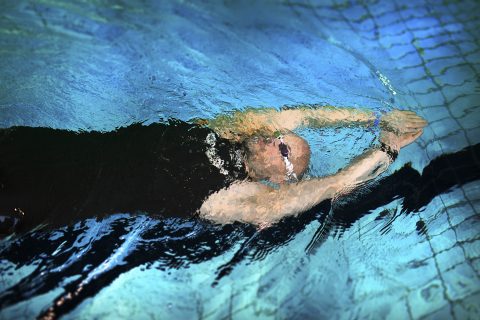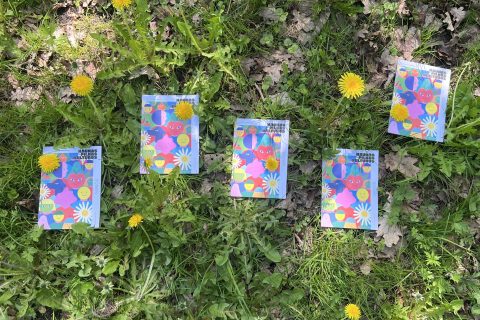In my opinion, Kaunas not only likes but also knows how to go above and beyond, surprising everyone with its ambitions. We could find examples in business, culture, and the narrower areas but this time, let’s talk about perhaps the most ambitious project of our beloved City – Žalgiris Arena, which has been hosting Kaunas residents, all Lithuanians and often residents of neighboring countries since 2011.
When you compare Kaunas with other cities of a similar size, it is easy to be surprised. After driving to another town with a population of 300 thousand, we often find neither trendy electronic music clubs nor art biennials, let alone large arenas. As my interviewee Mantas Vedrickas, Head of Events at Žalgiris Group, says, our closest competitor in this matter is Berlin.
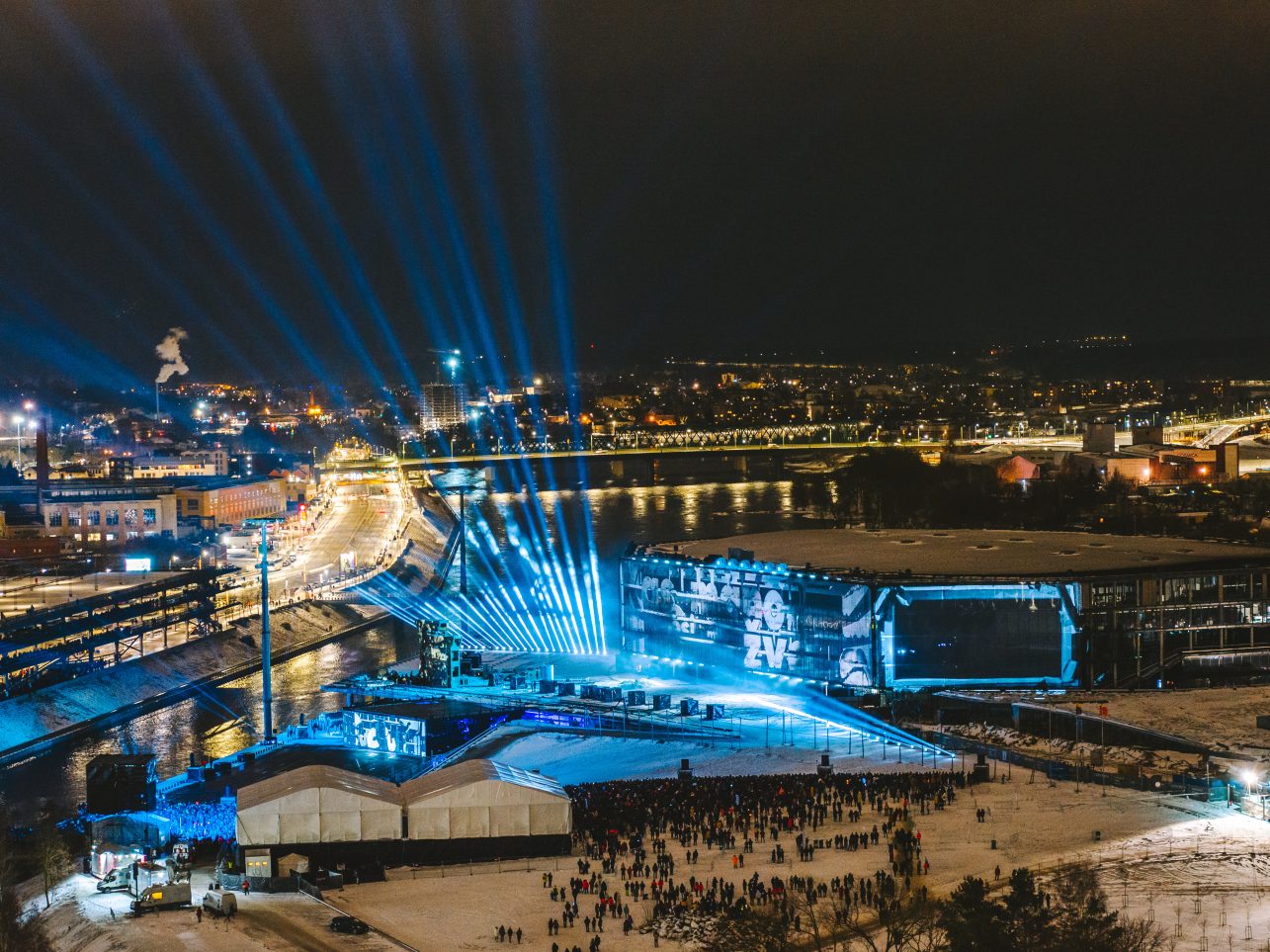
Dreams arose with the restoration of independence
We wouldn’t have an arena if it weren’t for the Lithuanian passion for basketball. It was the phenomenon of Kaunas Žalgiris during the late Soviet period and the early victories after the restoration of independence that stirred the most conversations about the necessity of a large event space, because the legendary Kaunas Sports Hall no longer met the European requirements.
A bit of history: The city’s most beloved team won the EuroCup and a ticket to the EuroLeague in 1998. A year later, to everyone’s surprise, they also won the title of the most prominent European league. What happened next, was the most important factor leading to the emergence of this arena (more precisely, arenas throughout Lithuania): for the first time since 1939 we got the opportunity to hold the 2011 European Basketball Championship.
In 1998 the municipality started talking with architect Eugenijus Miliūnas about the new sports hall. However, at first, they were thinking about Kalniečių Park, not the Nemunas Island in terms of its location. After long discussions, deliberations, and interrupted talks with the local architect and then with the French, after scandalous sums (the initial estimate of the project amounted to half a billion litas), they settled in the Karmelitai area.
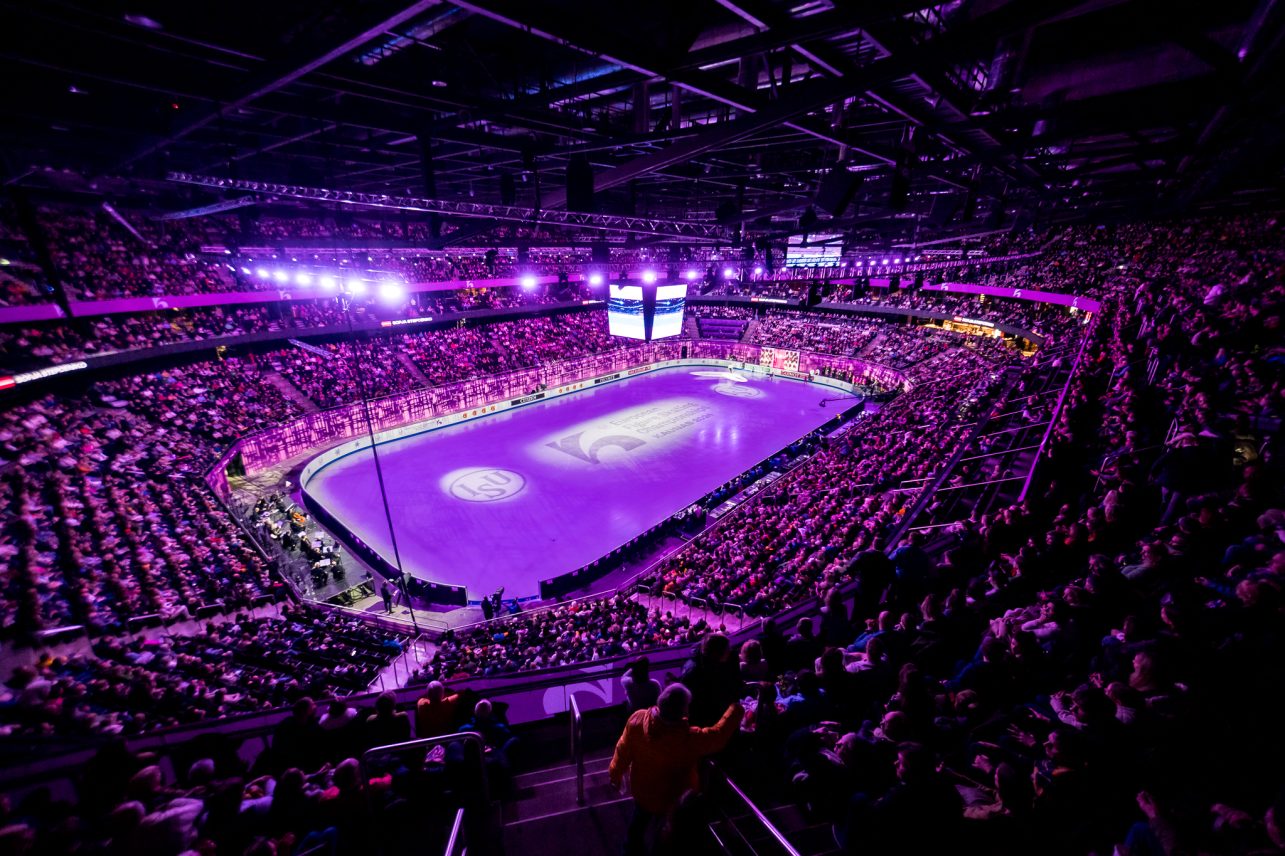
Finally, the symbolic capsule of the project is buried, and construction begins in 2008. The upcoming European basketball championship does not allow the project to get stuck; construction is not thwarted even by legal disputes between the two most famous Lithuanian contractors of the time. Mitnija, which won second place in the tender, prepared a complaint to the court about the unfair awarding of first place to the company Vėtrūna.
Myths were inevitable
All kinds of opinions and myths were floating around during the arena’s construction, and after it was built. I heard from at least several different “my friend knows the architects” sources that the new essential Kaunas event space was being built on garbage and was already sinking into the abyss of the father of Lithuanian rivers, the Nemunas.
Others were skeptical because we live in a village: who needs such a bulky structure here? They will never fill it, it is just another scam, a money laundering operation. Finally, they will demolish it, and a mythical phantom apartment building loved by the people of Kaunas and mentioned in every Kaunas project, will appear out of nowhere.
Since we are a country of hydro technicians and engineers, dozens of opinions have been expressed about a possible flood, the already flooded basements of the arena, the soil washed out around the foundations, etc. I remember people saying, “Dude, in five years it will tip over like the Leaning Tower of Pisa.”
“It is not surprising that such a project has sparked many rumors in a young state, but nothing has been confirmed. The most serious discussion was about necessity. However, we can see that, thanks to the arena, Kaunas has gradually become not a gas station between Vilnius and Klaipėda, but a travel destination,” Head of Events at the arena says.
A difficult start
We have all forgotten it now, but not long ago we had a certain persona at the center of the story. It was crooked and rotten, having ruined the lives of thousands, and almost led the country’s most beloved sports club to oblivion. In addition to that, he loved to read his useless poetry before every competition.
“The arena has already been given the name of Žalgiris, but let’s not forget what happened in 2013–2014, when Vladimiras Romanovas brought Ūkio Bank to ruin, embezzled a lot of funds, and fled to Russia. The team plunged into an even bigger debt, and proposals to board up the windows began,” M. Vedrickas recalls.
However, as we mark the 13th year of activity, we see how Žalgiris beloved by Kaunas residents gets out of debt, the arena becomes almost too small for basketball, big music stars finally start coming to Lithuania, and it is becoming common for local artists to hold performances there too.
Overcomes the challenges of time
“What fascinates me about Žalgiris Arena is the fact that it was built with a forward-thinking, long-term perspective. Today, it is not inferior even to new arenas in Europe. When I visit other, younger ones, I see how they succumb to time and wear out. Ours still looks like it was built yesterday,” the Head of Events continues. Yes, it was an extremely expensive project, accompanied by various scandals and different public opinions, but now probably no one doubts its necessity.
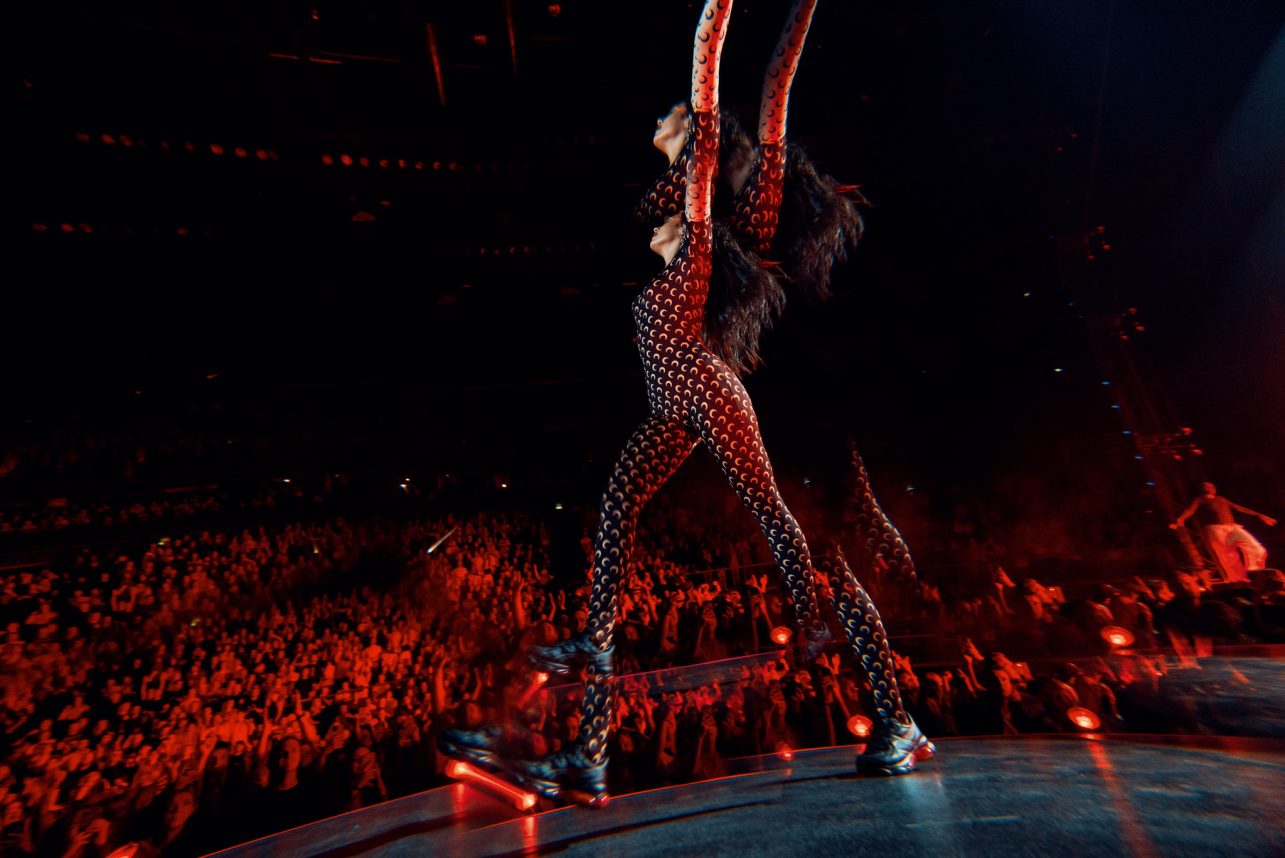
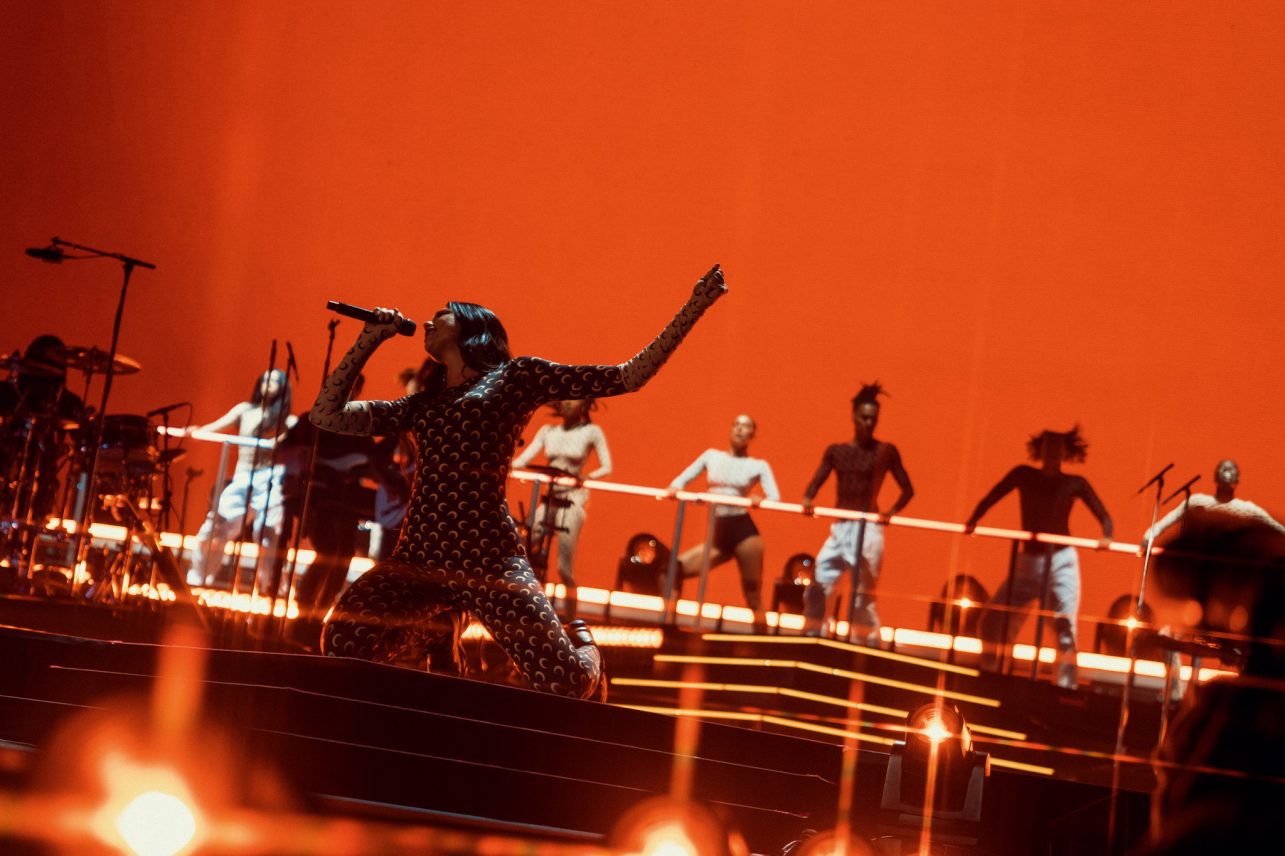
Bearing in mind that the construction of the arena began 15 years ago, and the designing process started almost 20 years ago, today, when I am inside, I feel like I am in a new and extremely well-maintained building. And my newer car parked next to it looks like it’s from The Flintstones.
Will find a way to adapt to everything
My interviewee is more than qualified. He has been working here since the opening, he started while he was still in high school. From an ordinary tech hand performing all the invisible and most difficult production work, he rose to the manager position.
“The biggest strength of my workplace is versatility. It is fast, convenient, and ready to host any event. We can invite you to the ballet today, to basketball tomorrow, to the Robbie Williams concert the day after tomorrow, then we can attend a boxing match and end the week with figure skating,” M. Vedrickas is full of praise for E. Miliūnas’ project.
Did you know that the arena floor is both heated and cooled? “After more than a decade of work, we can redo the hall for another event in just 3 hours. This means that if a basketball game ends at 10 p.m. at 1 a.m. we can already welcome the next day’s concert’s organizers with a prepared stage. All they need to do is organize their scenography, lights, and sound.
Mantas remembers 2018 as the biggest challenge: the World Ice Hockey Championship Group B competition and the playoffs for entering the final four of the EuroLeague took place in the arena at the same time. The parquet flooring was changed to ice and vice versa several times a week. Now, according to my interviewee, it would be easier because then it was done for the first time. “Everything moves fast here; everything is planned and perfectly orchestrated. Most of the systems, the floor stands are modular and can be moved, and disassembled. December in our arena is the best example. We have 25–26 events in 31 days. And that’s only in the great hall, not counting the conference and amphitheatre spaces.”
Breaking stereotypes
“Now we are happy about things that we were even afraid to dream about before. Many performers who came here were the first to break the ice for the entire region. We were afraid to dream about the final four of the EuroLeague. And now Kaunas, a tiny city, can boast of top-level events,” the arena operator continues.
I have to admit, if someone had told me as a kid that I would be able to go listen to 50 Cent on a Thursday after work, I would have just laughed. And now, after sweating through Rammstein, I can get home and be in bed in 20 minutes. In Kaunas, it’s like in the movies.
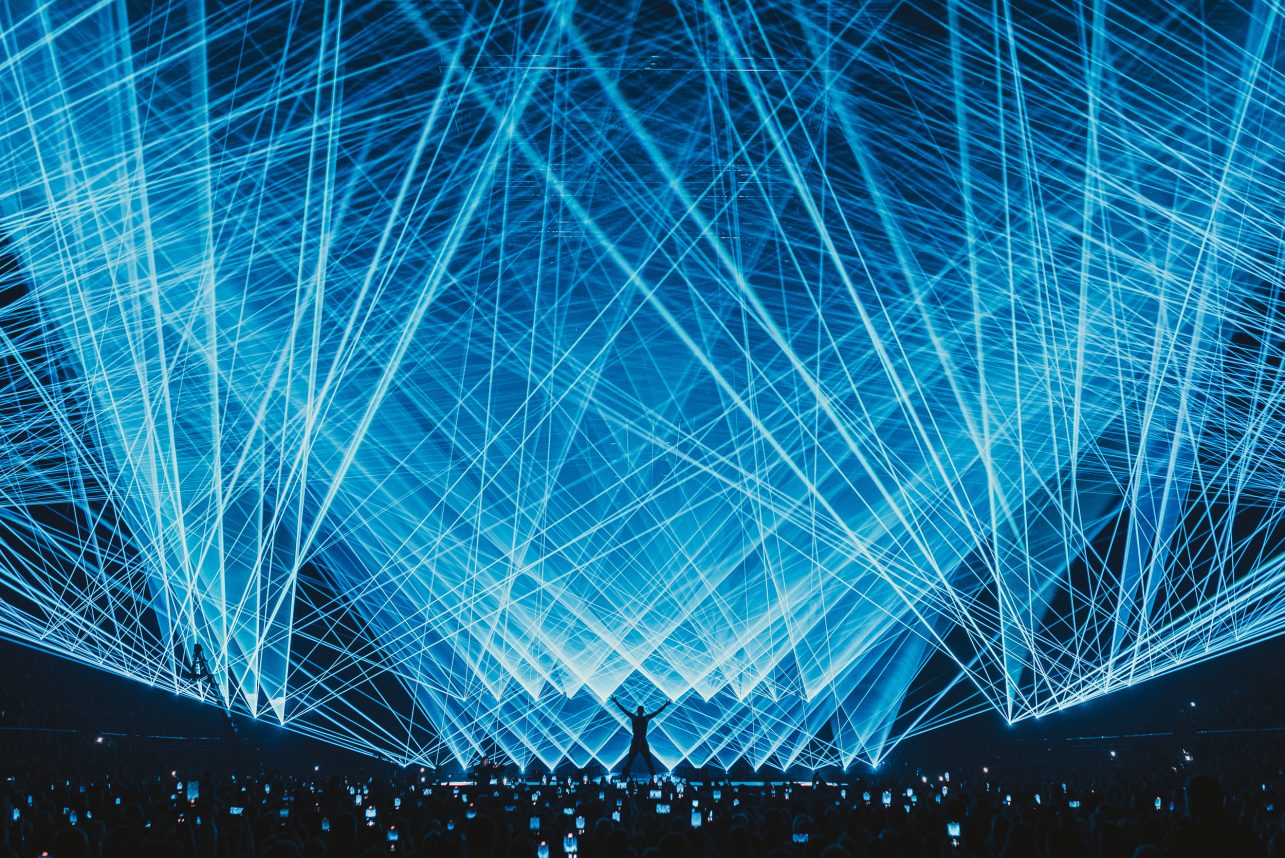
“I have heard that in the past, star teams used to come here with the preconception that something like Belarus was waiting for them here. However, when they saw our equipment, our preparation, our environment, our technical infrastructure, they were amazed. Now this stereotype has been destroyed, and both artists in the West and their agents and tour organisers know that this is not Eastern Europe. We are the West.”
The advantages of a small town are great
“It has to be stressed that the size of the city is an advantage for our work. It would seem on the contrary – not enough people, but I am talking about something else. In a city like this, it’s much easier to collaborate, to find help, to coordinate with the authorities, etc,” Mantas Vedrickas says.
Imagine you are organising a big event that requires certain permits, security, high volume, and other issues, and you must do it all in, say, Berlin. A city of millions of people with many event spaces, arenas, halls, and stadiums.
“It often seems that the whole city is working for the Žalgiris Arena. The people of Kaunas are very collegial, always supportive. In a small city, we have a close relationship with the police, the municipality and other institutions. All issues are solved faster, more efficiently and with a lot of support from the people. It seems that all Kaunas residents are proud of the team, the arena and our guests.”
The audience is calm and orderly
I remember the Pop Centras concerts described in the April issue that took place in the same island of Nemunas, just a decade before the construction of the arena, when I was just a child. At that time, drunk people rolling around, fights, littering and other Slavic reminiscences were commonplace, and it seemed that this was not going to change soon.
“We have a wonderful audience; Lithuanians are very orderly and respectful people. I have the highest opinion of our visitors. The fact that after almost 15 years of work and passionate sports, the arena is still clean, unbroken, and tidy shows the change in Lithuanian mentality and the great audience,” the Head of the Žalgiris Group’s event organisation does not spare any praise.
According to him, there are isolated cases, but considering that more than two Lithuanian populations have visited the venue during the years of its operation, it is impossible not to be pleased. The fans of foreign teams are usually the biggest hooligans. However, it’s worth noting that they don’t just break foreign arenas, they also break their own – it’s just a habit of some fans.
And there will certainly be room for the ever-growing audience. This year Žalgiris Group became the operators of the newly opened Darius and Girėnas Stadium and the renovated Kaunas Sports Hall. As they say, this will not only allow them to move events that can’t fit in the arena, but also to bring in names we could have only dreamt about before. Maybe not Taylor Swift, but, for example, Coldplay. Why not?

